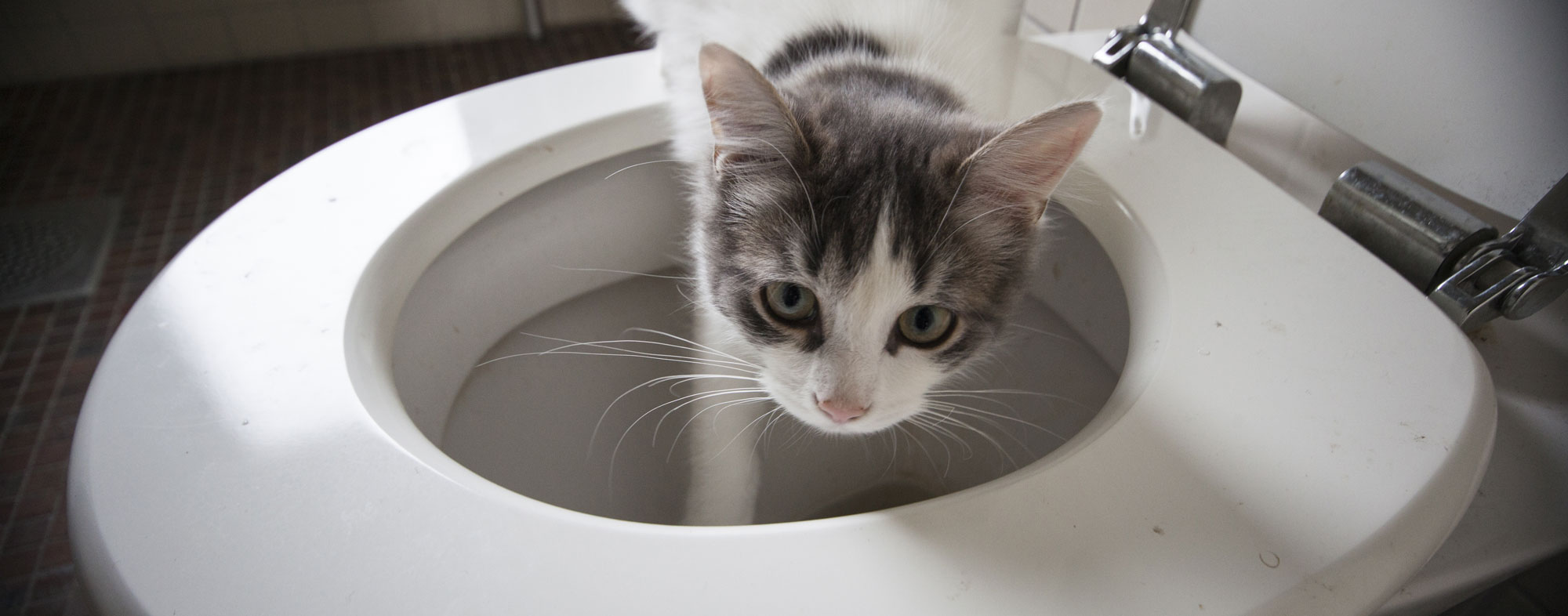Avoid Plumbing Problems: Don't Flush Cat Poop Down Your Toilet - Professional Advice
Avoid Plumbing Problems: Don't Flush Cat Poop Down Your Toilet - Professional Advice
Blog Article
We have unearthed the article on Can You Flush Cat Poop Down The Toilet? down the page on the web and concluded it made perfect sense to relate it with you here.

Introduction
As pet cat owners, it's essential to bear in mind how we throw away our feline pals' waste. While it might appear practical to purge feline poop down the toilet, this technique can have destructive repercussions for both the setting and human health.
Alternatives to Flushing
Thankfully, there are much safer and extra liable ways to throw away feline poop. Think about the adhering to alternatives:
1. Scoop and Dispose in Trash
One of the most typical technique of throwing away pet cat poop is to scoop it into an eco-friendly bag and throw it in the trash. Make sure to make use of a specialized clutter inside story and throw away the waste promptly.
2. Use Biodegradable Litter
Choose naturally degradable pet cat trash made from products such as corn or wheat. These clutters are eco-friendly and can be safely dealt with in the trash.
3. Hide in the Yard
If you have a backyard, take into consideration burying pet cat waste in a marked area far from veggie gardens and water sources. Be sure to dig deep adequate to prevent contamination of groundwater.
4. Install a Pet Waste Disposal System
Purchase a pet dog waste disposal system especially made for cat waste. These systems make use of enzymes to break down the waste, decreasing odor and ecological impact.
Health and wellness Risks
In addition to environmental worries, flushing pet cat waste can likewise posture health threats to humans. Feline feces may have Toxoplasma gondii, a parasite that can trigger toxoplasmosis-- a potentially severe disease, specifically for expecting women and individuals with weakened body immune systems.
Ecological Impact
Flushing cat poop presents hazardous pathogens and bloodsuckers into the water supply, posing a substantial risk to marine ecosystems. These pollutants can adversely impact marine life and compromise water high quality.
Final thought
Responsible animal possession expands beyond offering food and shelter-- it likewise entails appropriate waste management. By avoiding flushing cat poop down the commode and going with alternate disposal approaches, we can minimize our ecological impact and secure human health and wellness.
Why You Should Never Flush Cat Poop Down the Toilet
A rose by any other name might smell as sweet, but not all poop is created equal. Toilets, and our sewage systems, are designed for human excrement, not animal waste. It might seem like it couldn’t hurt to toss cat feces into the loo, but it’s not a good idea to flush cat poop in the toilet.
First and foremost, assuming your cat uses a litter box, any waste is going to have litter on it. And even the smallest amount of litter can wreak havoc on plumbing.
Over time, small amounts build up, filling up your septic system. Most litter sold today is clumping; it is made from a type of clay that hardens when it gets wet. Ever tried to scrape old clumps from the bottom of a litter box? You know just how cement-hard it can get!
Now imagine just a small clump of that stuck in your pipes. A simple de-clogger like Drano isn’t going to cut it. And that means it’s going to cost you big time to fix it.
Parasitic Contamination
Believe it or not, your healthy kitty may be harboring a nasty parasite. Only cats excrete Toxoplasma in their feces. Yet it rarely causes serious health issues in the cats that are infected. Most people will be fine too if infected. Only pregnant women and people with compromised immune systems are at risk. (If you’ve ever heard how women who are expecting are excused from litter cleaning duty, Toxoplasma is why.)
But other animals may have a problem if infected with the parasite. And human water treatment systems aren’t designed to handle it. As a result, the systems don’t remove the parasite before discharging wastewater into local waterways. Fish, shellfish, and other marine life — otters in particular — are susceptible to toxoplasma. If exposed, most will end up with brain damage and many will die.
Depending on the species of fish, they may end up on someone’s fish hook and, ultimately on someone’s dinner plate. If that someone has a chronic illness, they’re at risk.
Skip the Toilet Training
We know there are folks out there who like to toilet train their cats. And we give them props, it takes a lot of work. But thanks to the toxoplasma, it’s not a good idea.

I found that blog entry on How to Dispose of Cat Poop and Litter Without Plastic Bags when doing a lookup on the search engines. Sharing is good. You just don't know, you might be helping someone out. Many thanks for going through it.
Contact Us Now Report this page